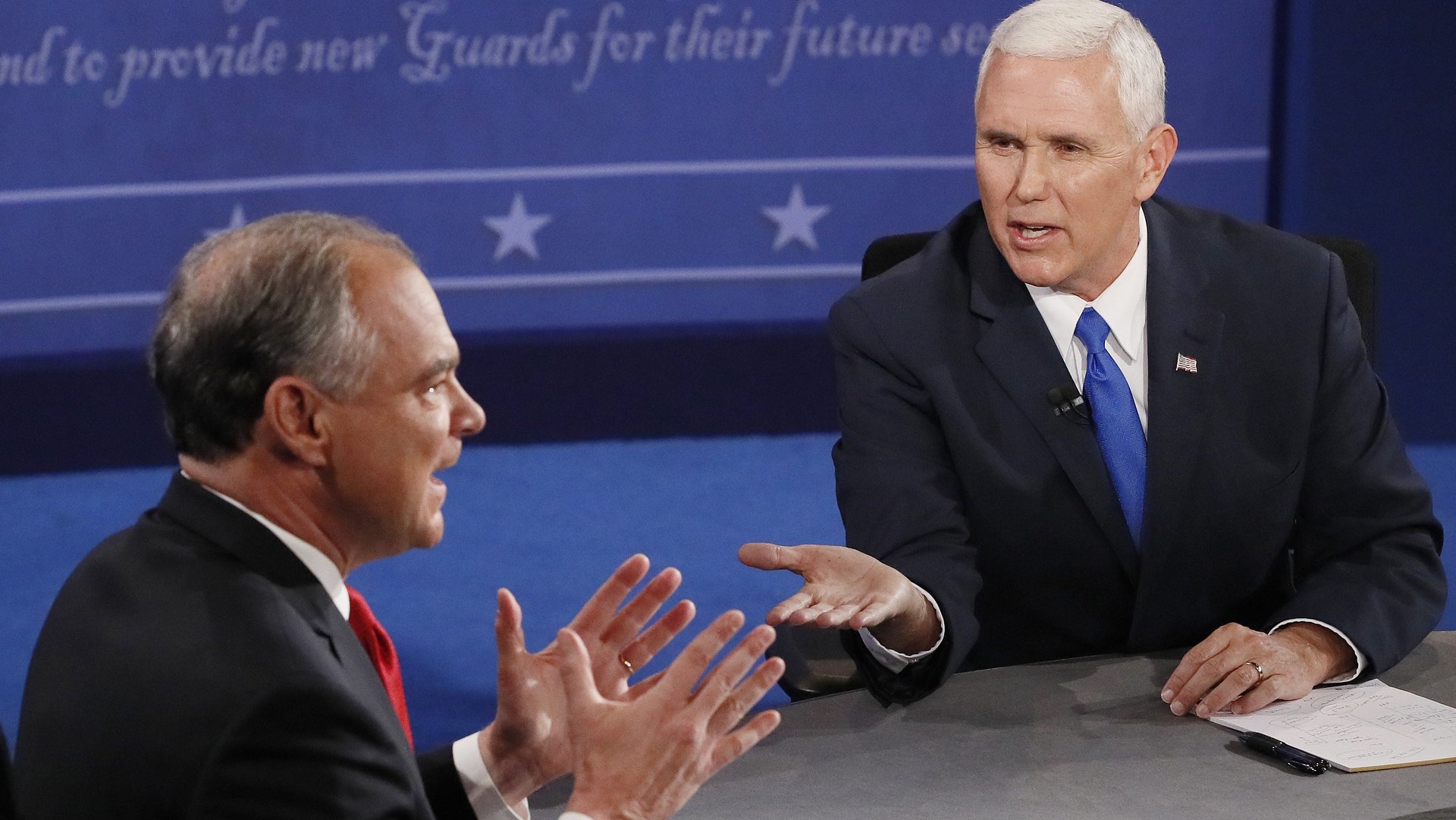Vice presidential debate: Mike Pence was not asked a single question about his decades-long assault on LGBT rights
Mike Pence, the Republican governor of Indiana running to be Donald Trump’s vice president, has devoted his life in public service to impeding the rights of LGBT Americans. But if you watched tonight’s one and only vice presidential debate, you would have had no idea.


Mike Pence, the Republican governor of Indiana running to be Donald Trump’s vice president, has devoted his life in public service to impeding the rights of LGBT Americans. But if you watched tonight’s one and only vice presidential debate, you would have had no idea.
Pence and Democrat Tim Kaine, Hillary Clinton’s running mate, clashed for 90 minutes, debating the economy, illegal immigration, terrorism, and abortion. Moderator Elaine Quijano focused much of the evening on foreign policy—namely the Iran nuclear deal, nuclear proliferation, the crisis in Syria, and the reign of Vladimir Putin in Russia.
Pence’s views on homosexuality, however, were not mentioned. So here’s a rundown:
- In 2015, Pence signed a law that would allow business owners to legally turn away LGBT people on the basis of their “religious freedom”
- He opposed federal funding for low-income people suffering from HIV/AIDS…
- …Unless funding was also “directed toward those institutions which provide assistance to those seeking to change their sexual behavior.” In other words, Pence advocated for conversion therapy
- He campaigned against adding LGBT protections to hate crime laws
- He said “homosexuality is incompatible with military service“
- Naturally, he’s against same-sex marriage—he tried to block it once it was legalized in his state of Indiana
- “Societal collapse was always brought about following an advent of the deterioration of marriage and family,” Pence said in 2006.
As of May, a majority of Americans supported same-sex marriage. The US supreme court ruled last year that it was legal in all 50 states. Society has yet to collapse, as Pence prognosticated.
You’d think that a vice presidential candidate with such views would at least be asked about them at the only VP debate. Voters who don’t necessarily know Pence’s record should hear about it, and Pence should have the opportunity to explain his stance.
Perhaps Quijano chose not to bring up LGBT issues because, sadly, most American just don’t prioritize them. A Pew poll conducted in July found that 40% of American registered voters thought the treatment of LGBT people was a “very important” issue, while 75% believed foreign policy was very important.
Still, it felt like 75% of the debate was allotted for discussion of foreign policy, while precisely 0% was devoted to treatment of LGBT people. Even if it’s not the most “important” issue as deemed by registered voters, that doesn’t excuse ignoring it entirely, especially when one of the candidates has spent decades advocating laws opposed by most Americans.